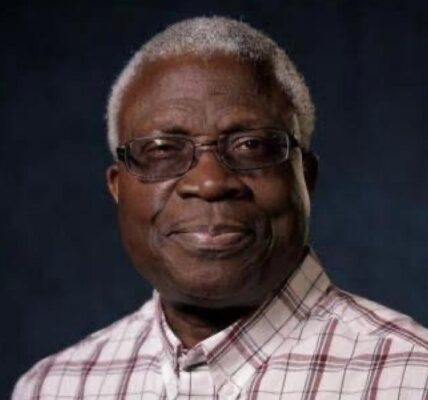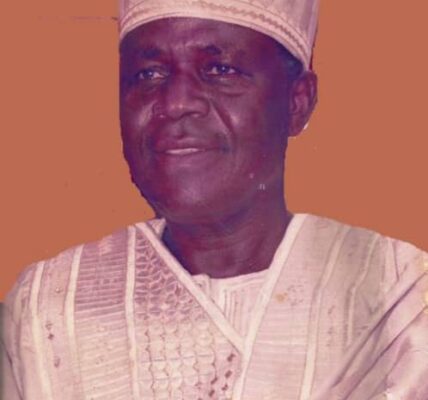“In the end, the Southeast would need to rethink not just its politics, but its leadership” —Ebuka Onyekwelu
The Southeast has a peculiar problem of leadership challenge and this reflects on business succession, political succession, and general order across the zone. In business, for instance, most businesses owned by Southeast industrialists of high repute between the 1980s and early 2000s have shutdown upon the death of their founders. This is calamitous, but the zone has felt even worse in politics.
In most instances, former political leaders just often appear to have done better than their successors. It looks like a general rule in the zone that past leaders must be adjudged better than their successors. It is not easily established if outgoing leaders deliberately support a leader who will perform less, to not diminish their relevance or influence. Whatever the case might be, the problem this creates manifests in abandoned projects due to a lack of shared value between the past and present leadership. There is also the problem of superiority contests that often keep successors on the path of war with their predecessors such that both can’t even compare notes and learn from the experience of the past. Therefore, creating a viable political future has been difficult. APGA for instance has remained an Anambra affair for nearly two decades. The problem, one may ask? Leadership! Conversely, APC is going through a revival in Anambra state. The cause, one may inquire? Leadership! Someone has taken it up to provide leadership to the APC in Anambra State. Leadership is limitless in the possibilities that lie within it.
In the Southeast state of Ebonyi, Governor Martin Elechi handed over to Engr. Dave Umahi who was his Deputy Governor. Interestingly, he (Elechi) left him (Umahi) and supported someone else. Umahi later emerged victorious both in the party primaries and in the General Election. This automatically meant that both Elechi and Umahi had nothing in common politically, moving forward. In fact, since then, nothing of importance has been heard of the former governor Elechi. In Imo, Ikedi Ohakim took over from Governor Achike Udenwa and eventually emerged through a heated political process after he left the PDP for the PPA and won the election. He was only able to serve for a single term and was defeated by Rochas Okorocha of APGA at the time. Okorocha eventually moved to APC. He then handed over to Emeka Ihedioha of PDP, who in time was sent packing and the baton taken by Sen. Hope Uzodinma of the APC. These are leaders with absolutely no shared values and interests. This same problem can be seen in Abia State from Governor Orji who fell out with His Excellency Orji Uzor Kalu, almost immediately after he became governor. Then, from Dr. Okezie Ikpeazu to Alex Otti. Both of whom are now accusing each other of various offenses. Enugu has remained a PDP state with little cracks in succession order. The PDP has remained the party in power since 1999 and Enugu is the only state in the Southeast with that record. Enugu is also the only Southeast state with minimal political rancour. This appears to have benefitted the state and can be seen in the stability and level of organized politics in the state. Anambra State has the most intriguing record in this experience. APGA has been in government since 2006. But each former governor is often on the path of intense disagreement with his successor. Mr. Peter Obi was on this path with Chief Willie Obiano for most of Obiano’s eight years. The relationship between Obiano and Governor Chukwuma Soludo cannot be said to be the best or desirable for a successor and his predecessor who are of the same political party.
What stands out in this is that there is a deep political leadership gap in Anambra State. Why is it so? There is complete absence of mentorship in the political space. It is too much for leaders in Anambra State to hold up their followers and open the door for them. This has strengthened political instability and stiff contests. The absence of leadership fuels the quest for political growth and tends to encourage breakaways and forceful contests. This is where people like Paul Chukwuma claim distinction in his party, the APC, over many other members of the party. The fact of this conversation is that political leadership must be pursued through an organized process. This requires a lot of work in a political party where future leaders are groomed and conscientized. Leadership is not just about position but about one’s commitment to people through a demonstrable interest in their progress both now and in the future.
“There is an intersection between good leadership and charity. A good leader must be charitable. But the good leader must move from charity to legacy, creating a sustainable pattern of progress.”
So it is more than how to win the next election. Anyone who is not interested in the personal progress of people can hardly be interested in the well-being of the community; there is just no way around it. This is why there is an intersection between good leadership and charity. A good leader must be charitable. But the good leader must move from charity to legacy, creating a sustainable pattern of progress. It is about creating systems or being able to make a system work better. This is what Chukwuma is currently doing in Anambra APC that has given it life and that is why today, it is hard to find a member of APC in Anambra, who is not favourably disposed to Paul Chukwuma.
In the end, the Southeast would need to rethink not just its politics, but its leadership. The work required for a progressive Southeast should be put in place at the political party level. But first, the zone has to settle for a political party around which its aspirations and national ambition can be pursued. For now, the APC has such prospects both as the party with new vigour in the zone and one in control of more than one state in the zone, which is the lot of other parties. Well, except the Southeast wants to continue playing catch up in the national political equation.













